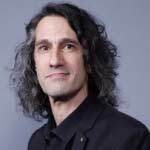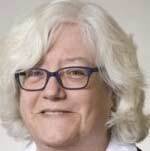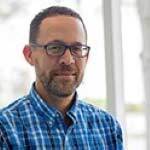Connect with Top Anthropology Professors on Twitter
These top anthropology professors are active leaders in anthropological academic and field research. They have advanced the knowledge of their field, launched educational programs, and authored scholarly articles or books.
A number of these professors study the origins of sociopolitical complexity, evolutionary theory and processes, and zoology, while others specialize in areas including race and racism, urban anthropology, and cultural values in historic preservation.
Several are leaders at their respective schools, while some participate in industry conferences, journals, publications, podcasts, or other activities advancing the research and application of anthropology in academic and real-world environments. All are involved and engaged on Twitter with significant followings.

Dr. David Anderson is an assistant professor of anthropology within Radford University’s Department of Anthropological Sciences and holds his degrees from Tulane University (PhD) and the University of Illinois, Urbana-Champaign. His research interests include public archaeology and the conceptions of heritage, the Formative Period of Maya and Mesoamerican culture, the origins and development of sociopolitical complexity, and academic engagement with pseudoscience and pseudoarchaeology.
Dr. Anderson’s current publication projects include Weirding Archaeology: Unearthing the Strange Influences on the Popular Perception of Archaeology (forthcoming, Routledge) and “The Preclassic Settlement of Northwest Yucatán: Recharting the Pathway to Complexity,” co-authored with F. Robles C. and A.P. Andrews, in Pathways to Complexity in the Maya Lowlands: The Preclassic Development (K.M. Brown and G. J. Bey III, eds., University of Florida Press, 2018).
He is active on Twitter and regularly contributes to publications, including Forbes Science and The Washington Post.

Dr. Agustin Fuentes is a professor at Princeton University’s anthropology department. Dr. Fuentes is an anthropologist whose research focuses on the biosocial, delving into the entanglement of biological systems with the social and cultural lives of humans, our ancestors, and a few of the other animals with whom humanity shares close relations.
From chasing monkeys in jungles and cities to examining human health, behavior, and diversity across the globe, Dr. Fuentes is interested in both the big questions and the small details of what makes humans and our close relations tick.
Earning his BA/BS in anthropology and zoology and his MA and PhD in anthropology from UC Berkeley, Dr. Fuentes has conducted research across four continents, multiple species, and two million years of human history. His current projects include exploring cooperation, creativity, and belief in human evolution, multispecies anthropologies, evolutionary theory and processes, and engaging race and racism.
Dr. Fuentes is an active public scientist, a well-known blogger, lecturer, tweeter, and an explorer for National Geographic. He was recently awarded the Inaugural Communication & Outreach Award from the American Association of Physical Anthropologists, the President’s Award from the American Anthropological Association, and elected to the American Academy of Arts and Sciences.

Dr. Rosemary Joyce is a professor of anthropology at the University of California, Berkeley. Her research interests include materiality and the archaeology of inequality; gender, sex, and sexuality; and cultural heritage policy. The focus of Joyce’s research is the ways people employ objects in actively negotiating their place in society, the lives and itineraries of objects, and the reframing of human engagement with the world in terms of materiality.
Her published writing includes books and articles on the use of representational imagery to create and reinforce gendered identities, ranging from examinations of Classic Maya monumental art and glyphic texts to small-scale images. Some of this work also involves mortuary analysis. She is an expert in the study of ceramic materials, including studies of crafting, the use of pots in everyday life and on special occasions, and meaning-making with painted pottery vessels and figurines.
Dr. Joyce participated in field research in northern Honduras from 1977 to 2009 in the Ulua and Cuyumapa valleys, Lake Yojoa, and the Caribbean coast. The sites where she conducted research date from before 1500 BCE to the Spanish colonial period. She employs multi-scalar approaches that consider regional patterns and detailed household archaeology together.
Since 2010, she has been developing collaborations with colleagues in Mexico that bring the household scale approaches we developed in Honduras into a regional-scale project in the hinterland of Classic Maya Palenque, Chiapas.
As a museum anthropologist, Dr. Joyce works with curated collections, including photographs and historical archives, in museums in North America, Europe, and Honduras. She has engaged in collections management and exhibition work at Harvard's Peabody Museum, the Wellesley College Museum and Cultural Center, the Heritage Plantation at Sandwich, Massachusetts, the Museo de Antropología e Historia in San Pedro Sula, Honduras, and the National Museum of the American Indian, Smithsonian Institution.
Her work with museum collections inspired an interest in disciplinary history. She has published work about women who were early archaeologists in Honduras, and more broadly on the history and sociopolitics of archaeology, using Honduras as a case study. This led to her current work on cultural policy and the histories of collecting.

Dr. Setha Low is a professor of anthropology, psychology, and earth and environmental sciences at The Graduate Center of the City University of New York. She received her PhD in cultural anthropology from the University of California, Berkeley.
Dr. Low trains PhD students in the anthropology of space and place, urban anthropology, the anthropology of the body, and cultural values in historic preservation. She is also the director of the GC’s Public Space Research Group. She has been awarded a Getty Fellowship, an NEH fellowship, a Fulbright Senior Fellowship, and a Guggenheim Fellowship for her ethnographic research on public space in Latin America and the United States. Notably, she was president of the American Anthropological Association from 2007 to 2009.
Her current research is on the impact of private governance on New York City co-ops and condominiums. She is writing a book titled Spatializing Culture: An Anthropological Theory of Space and Place.
In 2009, she began a collaborative project with Dolores Hayden on spatial methods and public practices, funded by the Center for Advanced Study in the Behavioral Sciences at Stanford, and in 2010, she was a fellow in the Center for Place, Culture, and Politics.
In 2011, she became co-chair of the Public Space and Diversity Network, funded by the Max Planck Institute for Religious and Ethnic Diversity. Most recently, she received funding from the Canadian Social Sciences and Humanities Research Council to study condominiums and private governance in Toronto and New York with Randy Lippert.
She is widely published, with more than a hundred articles and chapters, and lectures internationally. Her books include Politics of Public Space (2006), with Neil Smith; Rethinking Urban Parks: Public Space and Cultural Diversity (2005), with S. Scheld and D. Taplin; Behind the Gates: Life, Security and the Pursuit of Happiness in Fortress America (2004); The Anthropology of Space and Place: Locating Culture (2003), with D. Lawrence-Zuniga; and On the Plaza: The Politics of Public Space and Culture (2000).

Dr. David Simmons is an associate professor in the departments of anthropology and health promotion, education, and behavior and is the faculty principal of the Galen Health Fellows Living and Learning Community at the University of South Carolina.
Dr. Simmons received his PhD from Michigan State University (2002) and completed a three-year National Science Foundation post-doc at Harvard Medical School in the Department of Social Medicine in infectious disease and social change (2002-2005). He is an active member of the American Anthropological Association (where he serves as President of the Association of Black Anthropologists) and is on the Board of Directors for the South Carolina TB Association.
Dr. Simmons's broad research interests are in the intersections of culture, medicine, and public health, and his primary research explores how power—be it political, economic, or social—shapes health outcomes for vulnerable populations. Underlying this broad project is an interest in how power comes to shape the terms of engagement—and indeed the very meanings—of health, healing, and therapeutic practice among differently positioned actors.

Dr. Jenny Tung is an associate professor of evolutionary anthropology and biology at Duke University and an affiliate of the Duke Population Research Institute.
She joined the Duke faculty in 2012 after completing her post-doctoral training in the University of Chicago Department of Human Genetics and her PhD training in the Duke biology department.
Research in the Tung Lab focuses on the intersection between behavior, social structure, and genes. The lab is particularly interested in how social environmental variables of known biodemographic importance, such as social status and social connectedness, feed back to influence gene regulation and population genetic structure. They primarily ask these questions in nonhuman primates, which are natural models for human social behavior and physiology.
Currently, most of their work centers on a longitudinally studied population of wild baboons in Kenya (Dr. Tung co-directs the Amboseli Baboon Research Project) and captive rhesus macaques at the Yerkes National Primate Research Center. They also recently extended their research to other social mammals, including wild meerkats and captive Damaraland mole rats in the Kalahari Desert of South Africa.
